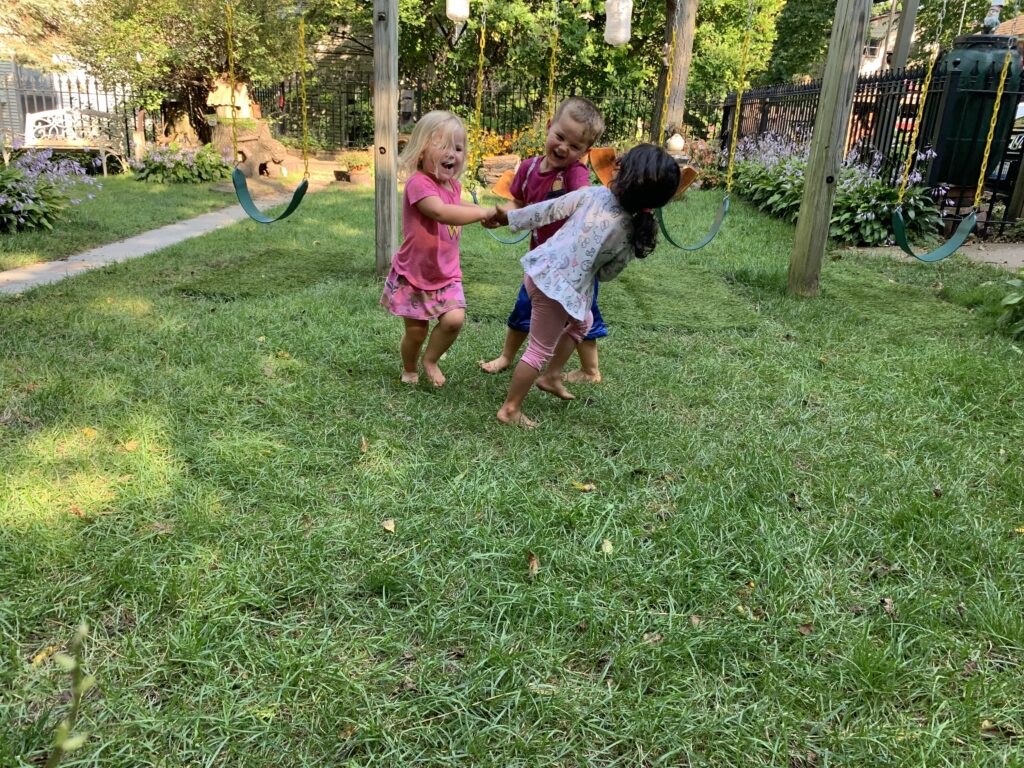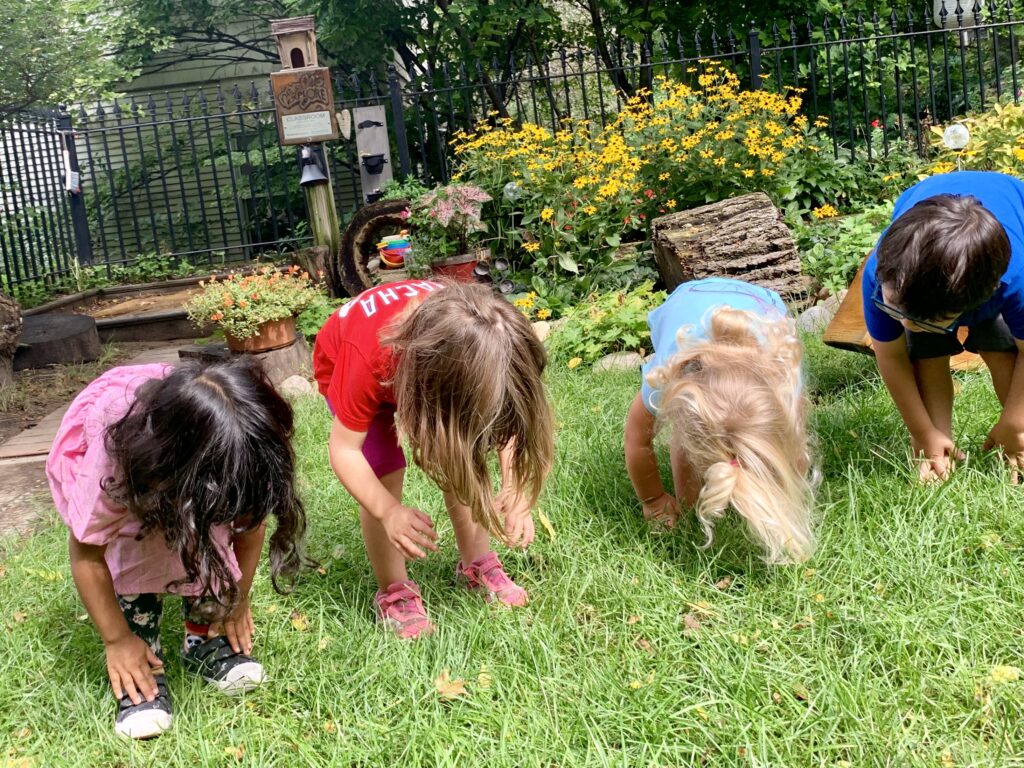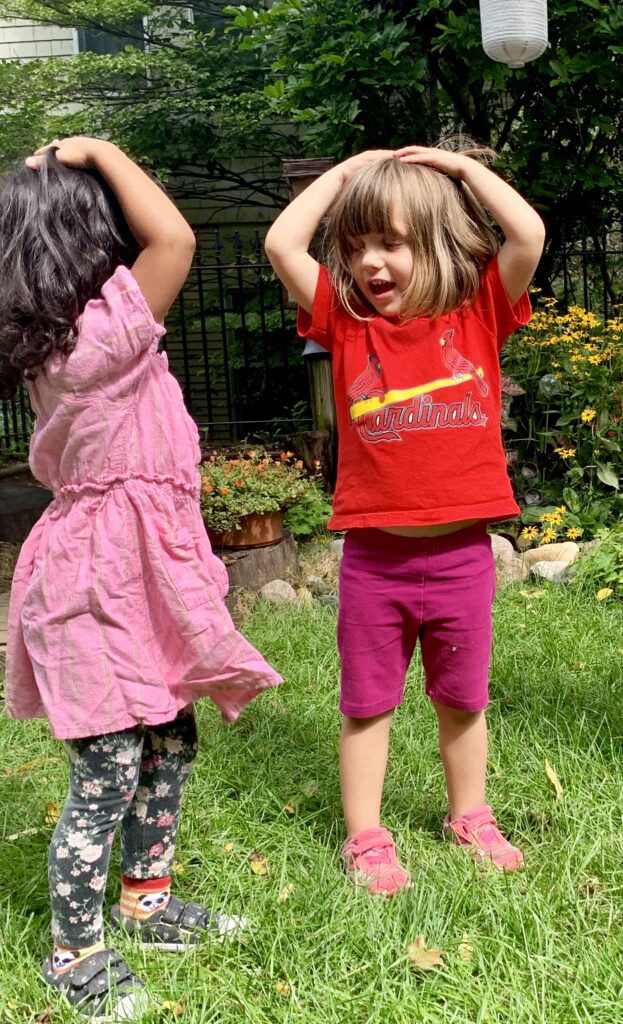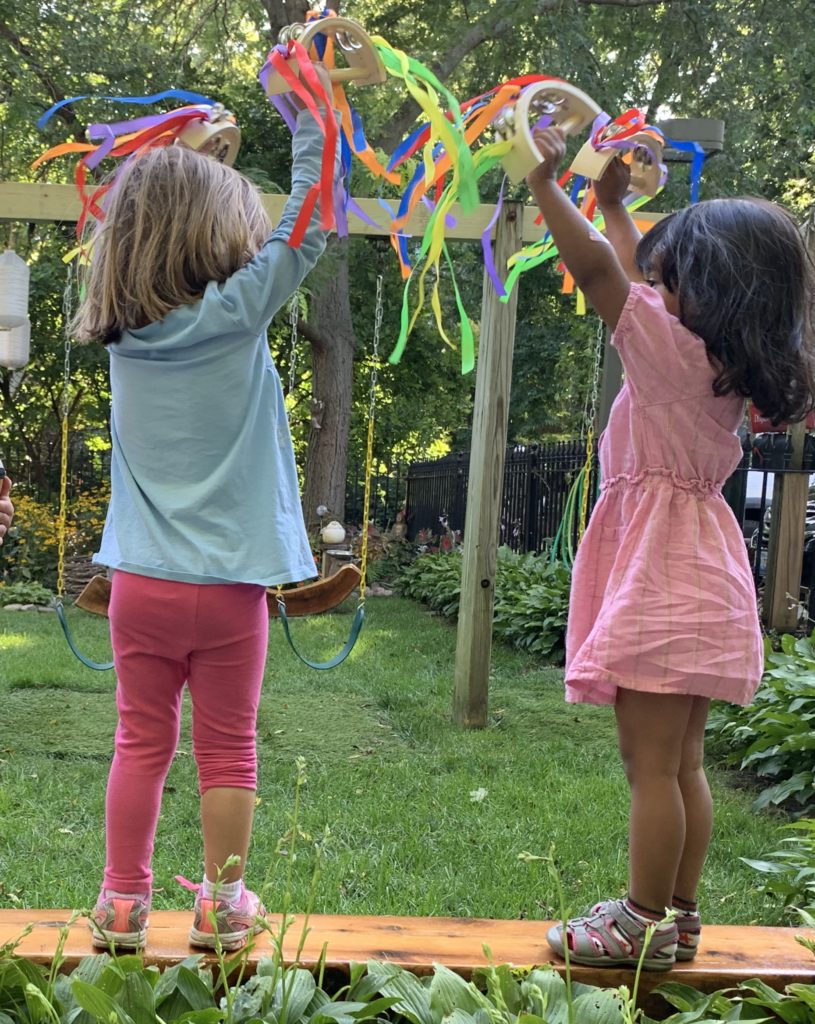Counting on Songs

"Five green and speckled frogs . . . sat on a speckled log . . . eating some delicious bugs. Yum yum!"
When we sing counting songs such as “Five Green and Speckled Frogs” or “This Old Man,” we introduce counting and numbers and math concepts such as adding or removing one from a group.
The repetition and rhythm in these songs make it easy for very young children to remember the name of the song and the sequence of the number patterns. As they learn to anticipate these patterns and the sequences of events or objects, children are building early math skills that they will need in the years to come.
Music and movement are powerful tools for learning. When children actively listen to and dance to music, multiple areas in their brains light up. As we engage more senses, we engage more areas of the brain—and more learning takes place!
A five-year study at the University of Southern California’s Brain and Creativity Institute found that the use of music in early childhood accelerates brain and language development, speech perception and reading skills.
How many times have you used counting while singing a song to your child? When we give children opportunities to sing along with music or listen to music, we enable them to explore math concepts such as matching, comparison, patterns, sequencing, counting, shapes and space. That's a lot of learning through play!

We also use songs to work on vocabulary, memory and repetition. This week, the children asked if they could sing the song “Head, Shoulders, Knees and Toes” over and over again.
When children sing songs like "The Wheels on the Bus," the music and movement stimulate so many areas of the brain that learning is enhanced by as much as 90 percent.
Physical movement also enhances memory and recall.

When your child is singing and laughing all the way through "Heads, Shoulders, Knees and Toes" or "Teddy Bear, Teddy Bear," know that your child is also developing physical skills such as balance, spatial awareness and hand-eye coordination, as well as social skills such as cooperation and taking turns.
Using songs in your daily routines can help you get your child ready for kindergarten. Keep it light, keep it easy, and keep it fun! Sing loud, sing often, and sing off-key! Your child won't remember your singing skills, but the words to the songs, which will lay a strong foundation for their future math learning!
